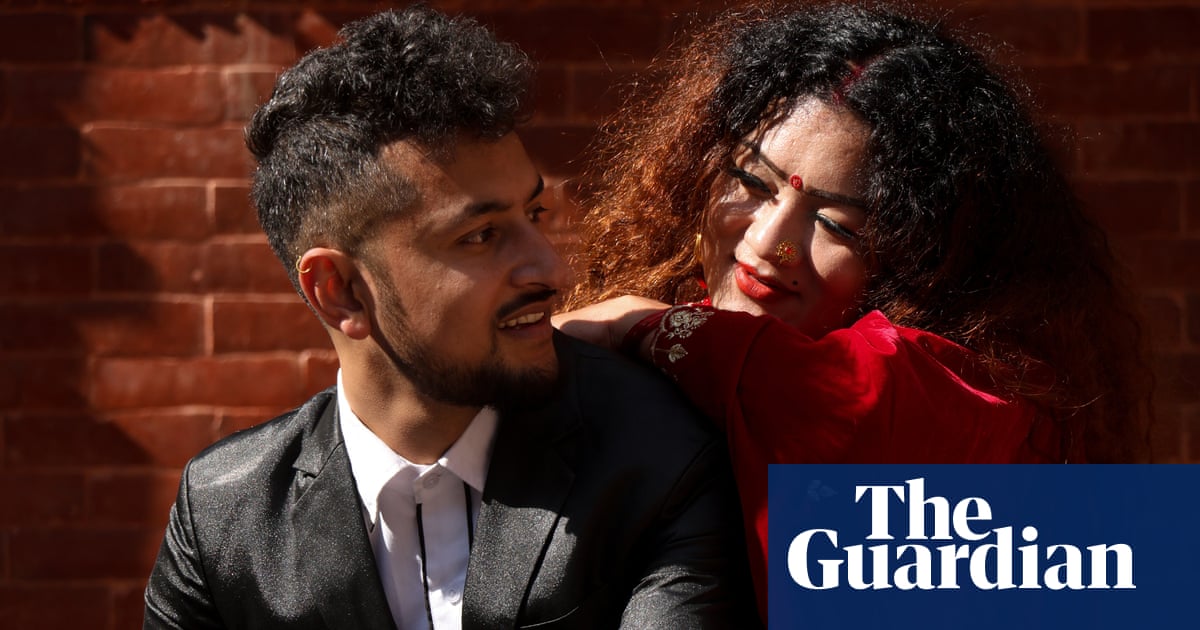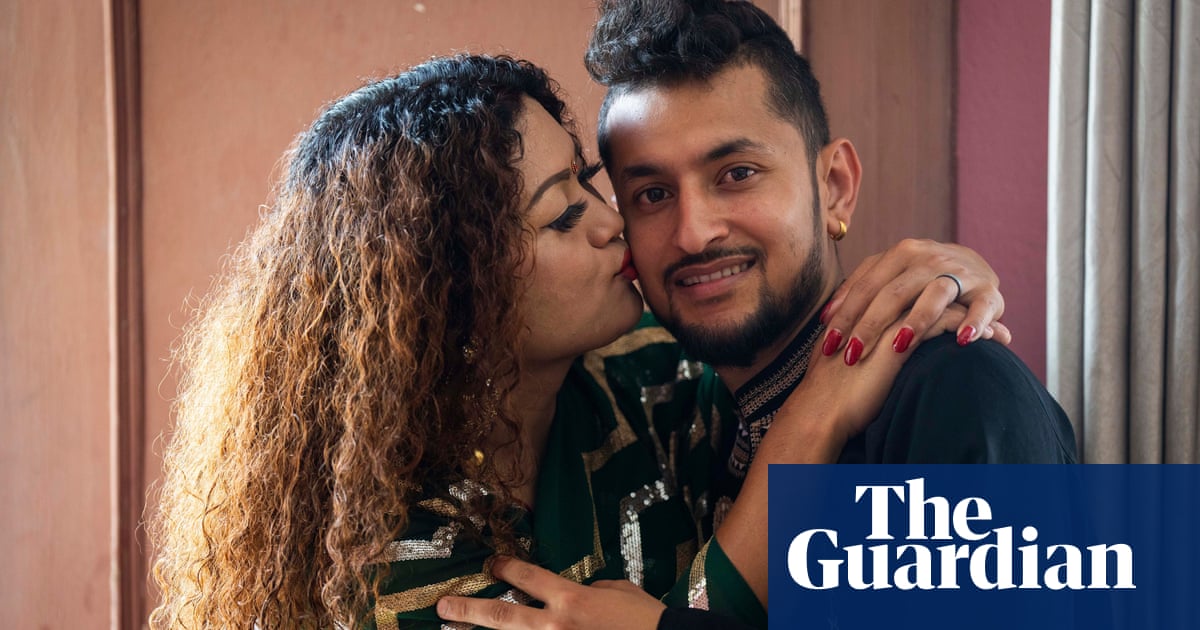
The dancing continued until the early hours. Family and friends – and Suru the dog – gathered in western Nepal to mark the joyful end to what had been a historic day for Maya Gurung and Surendra Pandey. On Wednesday, they became the first same-sex couple in south Asia to have their marriage legally recognised.
“Finally, we are completely together, finally we are completely each other’s, finally we can perform each other’s funeral if we die tomorrow,” Gurung, 37, a transgender woman, says as the couple sit in the register office in rural Dordi municipality, where she was born.
“Yes, we won it, we did it. We can have a beautiful future now,” says Pandey, 27, a cis-man, as pink and orange garlands of flowers are placed around their necks.
Six months ago, Nepal’s supreme court issued an interim order directing the government to create a separate register for marriage between same-sex and transgender people until marriage legislation could be amended. In 2007, the court ordered the government to look into law changes to allow same-sex marriages, which are allowed in the constitution. However, successive governments failed to bring legislation before parliament.
The supreme court ruling in June prompted huge celebrations among the LGBTQ+ community in Nepal. However, for Gurung and Pandey, who had a Hindu wedding ceremony in 2017, it proved short-lived: they faced significant legal hurdles and opposition to get their marriage recognised.
“We thought we got justice. But that happiness did not last long,” says Gurung. Marriages can be registered in the courts or at local government offices, but both initially refused to allow the couple to register, which Gurung says was “heartbreaking”.
“We were married socially but officially we were still single. We could not open our joint account, we could not buy property together, we could not open a business as a couple,” she says. “If I died tomorrow, or if he died, we couldn’t hold a funeral legally.”
Finally, after weeks of discussion and finding the right forms to fill, Gurung’s home town in Lamjung district agreed to register them. Ranju Biswhokarma, municipality registrar, says: “I am so proud that I am the first register in this county who got to sign a historic marriage certificate.”
Pinky Gurung, who leads Blue Diamond Society Nepal, which supports the LGBTQ+ community, says: “We heard that there was a meeting of a few judges of the district and high courts who decided not to let LGBTQ+ marriages be registered at the court. But village people showed humanity.”
Gurung and Pradey’s marriage has restored hope among other LGBTQ+ couples.
Manila Neupane and Prakash Chaudhari, both 33, who had a traditional marriage three years ago, plan to register their union. The couple, from Bhairahawa, were turned back from Rupandehi district court when they tried to register their marriage after the supreme court ruling.
“I am so happy we can also register our marriage. It is so emotional a moment for us, finally,” says Neupane. “I went to Rupandehi district court as soon as the supreme court interim order came but they turned me back, citing the Kathmandu court’s refusal.”
Bhakti Shah, 38, who has been living with her partner Ramila Shrestha, 36, in Kathmandu for 19 years, is excited about the future.
“We can’t wait to move forward to legalise our marriage,” Shah says. “You know our marriage is not legal, so there were some insecurities in our relationship: like I often thought that she might leave me or I might think the same sometime. Another huge problem is we can’t transfer our properties to each other. If I die tomorrow, she will not inherit my properties. Isn’t this injustice to us?”
Dil Kumar Tamang, director of the Department of National Id and Civil Registration, says marriage registration forms have been amended to allow same-sex and transgender couples to now marry.
“It’s our duty to do it,” he says. “If other same-sex couples want to register their marriage we will facilitate them.”
Armed with their new marriage certificate, Gurung, who before transitioning was forced to marry a woman when she was 18, and Pandey, who lost his parents when he was six, are joined by Gurung’s extended family to dance and celebrate.
Dhana Maya Gurung, 61, Gurung’s aunt says: “I never thought this day would come. It was unfortunate that we had to watch her pain, but could not help. Rather, we forced her to be someone else that she did not want to be.”
Gurung’s cousin, Shanta Maya Gurung, says: “I used to feel ashamed to take Maya with us as he used to dress like a girl, but I feel ashamed of myself that I did not understand her.”












